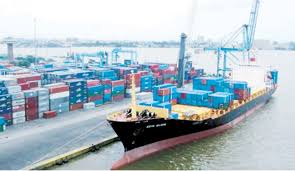Stakeholders in Nigeria’s trade sector are banking on the growth of non-oil exports to revitalise the country’s intra-African trade, despite a notable decline in export earnings to the continent. According to the National Bureau of Statistics, Nigeria’s exports to African countries dropped by ₦631.52 billion in just two quarters, falling from a peak of ₦2.49 trillion in Q3 2024 to ₦1.85 trillion in Q1 2025.
The data shows a continuous downward trend. From Q3 to Q4 2024, Nigeria’s exports to Africa dropped by 17.86 per cent to ₦2.04 trillion, and then by another 9.19 per cent to ₦1.85 trillion in Q1 2025. In Q1 2025, exports to African countries accounted for 9 per cent of Nigeria’s total exports, which stood at ₦20.59 trillion. This marks a consistent decline from earlier quarters where exports to Africa accounted for 11.67 per cent, 12.13 per cent, and 10.20 per cent, respectively.
Experts say this drop is largely due to the reduction in oil exports, which have traditionally formed the bulk of Nigeria’s trade revenue. In Q1 2025, crude oil exports dropped by 6.01 per cent quarter-on-quarter to ₦12.96 trillion, and by 16.35 per cent year-on-year. On the other hand, non-oil exports rose by 11.45 per cent, moving from ₦2.84 trillion in Q4 2024 to ₦3.17 trillion in Q1 2025. This segment now represents 15.38 per cent of total exports.
President of the Lagos Chamber of Commerce and Industry, Gabriel Idahosa, stated that the shift towards non-oil trade is expected and necessary. He linked the growth in non-oil exports to the Federal Government’s exchange rate unification policy, which has made Nigerian products more affordable in foreign markets.
According to Idahosa, “Non-oil exports are growing due to internal policies aimed at value addition. We are now refining more oil locally and exporting fewer crude barrels. It’s no surprise that refineries like Dangote Refinery are consuming a large portion of Nigeria’s crude oil.”
He also explained that a weaker naira benefits exporters. “If you spend $1,000, you now get more naira than before the exchange rate unification. This tactic has been used by many countries to boost exports,” he added.
Director of the Centre for Promotion of Private Enterprise, Dr Muda Yusuf, agreed. He said the currency depreciation has made Nigerian goods more competitive in African markets. “Our goods are cheaper, and manufacturers are seeing increased demand. Some may not be exporting directly, but their distributors are getting their products into neighbouring countries,” he said.
Yusuf added that oil export figures have been affected by declining output and lower global oil prices. He noted that the government’s economic reforms are yielding results, but urged more focus on industrial development.
The Afreximbank Annual Meetings and the West Africa Economic Summit, both held in Abuja this year, also centred on intra-African trade. Speaking on a television interview, Kanayo Awani, Executive Vice President of Intra-African Trade at Afreximbank, said, “For Africa to take charge of its economic destiny, intra-African trade must be at the core of our strategy.”
Awani and other leaders called for full implementation of the African Continental Free Trade Area (AfCFTA) and investment in cross-border payment platforms like the Pan-African Payment and Settlement System (PAPSS).
John Aluya, a council member of the Manufacturers Association of Nigeria, pointed out that only 48 countries have ratified the AfCFTA agreement, with Nigeria joining in December 2020. He expressed optimism that trade between African nations could address food insecurity and promote economic integration.
“We can send food and goods to areas suffering from famine. PAPSS will make that easier, allowing traders to pay and receive money in their local currencies,” Aluya said.
He explained that traders will no longer need costly credit lines that pass through third-party countries. “It will cut out the one per cent confirmation fee and strengthen African financial sovereignty,” he added.
Despite the downturn in overall export earnings from Africa, there is renewed optimism that Nigeria can lead a shift toward non-oil exports by promoting value-added manufacturing, agricultural trade, and regional integration.
Stakeholders say the path forward must involve more investment in export-processing infrastructure, simpler border procedures, and harmonised trade policies. With oil no longer a guaranteed revenue source, Nigeria’s future trade strategy may rest on how effectively it harnesses non-oil sectors to deepen regional ties.
